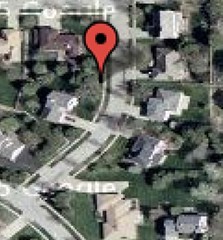Our choice for stupidest article of the day goes to this gem from Will Lester and the Associated Press:
AP-AOL Poll: High Gas Prices Force Changes: "By WILL LESTER, Associated Press Writer - WASHINGTON - Americans feeling the impact of high gasoline prices are driving less, rearranging vacations and cutting other expenses to balance the budget."
Flash: Higher prices reduce demand for gasoline! Who knew? Why doesn't it work like that for anything else?
"An Associated Press-AOL poll found that 51 percent of those surveyed say that if fuel prices remain high for the next six months it will cause a financial hardship for them. Thirty percent of those polled classified the hit as 'serious,' according to the survey by Ipsos-Public Affairs for the AP and AOL News."
Something tells us most of those polled don't know the difference between "hardship" and "inconvenience." But wait, there's more:
"'You have to decide -- gas, groceries, medicine,' said Marcia Cain of Indianapolis, who is semiretired. 'I'm on limited income. I don't go out as much -- eating out, going to listen to jazz. It uses gas you don't want to use.' Cain paid $2.15 per gallon this week after paying $2.35 per gallon the week before. 'It aggravates me, but there's not much I can do about it,' she said."
Just a suggestion, Ms. Cain, but perhaps cutting out the jazz concerts and restaurant meals should come before giving up food in general or medicine. Suppose she drives 15 miles in a car that only gets 15 mpg to go out to eat or to listen to jazz. That evening now costs $1 more than it did a few months ago. It's hard to see that being more than 5-10% of the total cost of that evening.
Of course higher gas prices really do squeeze some people, but it's absurd to claim this will be a "hardship" for half the country. An adjustment, yes. An inconvenience, sure. An irritation, certainly. Let's have a little perspective here, people.
"The survey found that 58 percent of respondents have reduced their driving, 57 percent have cut back on other expenses and 41 percent have changed vacation plans to stay closer to home."
Not that we doubt that people are using less of something that suddenly becomes more expensive, but did we need a poll to find this out? How about just looking at the total number of gallons sold now vs. last year at this time?
Now on to America's favorite sport: assignment of blame.
"Americans spread the blame around, with 29 percent pointing to the oil companies, 24 percent citing foreign governments that dominate oil reserves and 23 percent saying it's the fault of politicians. Eight percent blame the high prices on 'environmentalists who want to limit oil exploration,' while 6 percent blame 'people who drive gas-guzzling vehicles.'"
So 52% of those polled are so ignorant of economics that they don't know that producers don't control prices, supply and demand do. We love blaming things on politicians as much as the next guy, but politicians are not
directly the cause of this. Good grief, GWB just invaded Iraq to steal their oil, what more do you want, people? Hey, at least we don't
yet have another
"Synfuels" rathole to pour money down.
Limits on Exploration? Gas-Guzzling Vehicles? -- Tastes great. Less filling. Yes, you're both right, and 14% if those polled have at least one clue. Now the guzzlers are paying more and exploration is being expanded.
There are other factors, too. The weakness of the dollar makes oil cheaper for users in other countries even at a higher price in dollars, driving up demand. Demand for oil by China is much higher than just a few years ago, because of Chinese economic development. The NIMBY syndrome is also a culprit, as no one has wanted refineries near them, so practically none have been built for years. Complex environment rules mandate many different gas formulations by state and region, driving up costs. The feds just pumped a lot of crude into filling the Strategic Petroleum Reserve, boosting demand some more.
Taxes are a big part of the price of gas in most states. Check out the fine print at the pump next time to see your state's take. Note that fuel taxes based on a percentage of the price mean an automatic, hidden tax increase as the price rises.
So altogether we can't let the politicians off completely in this blame game. They did pass and maintain the environmental restrictions that drove up costs and cut supplies. They let NIMBY block refinery construction, and they are responsible for driving down the value of the dollar. State politicians control the gas taxes.
Perhaps some of those blaming "politicians" were thinking of these things. We're afraid, however, that most just checked that box out of a general feeling that government should "do something" about the problem. After all, it's the government's job to solve
all problems.
Would it be too much to expect the AP to write a sensible, informative article about the real causes of the situation instead of a stupid poll? Yes, we guess it would be too much to expect.





